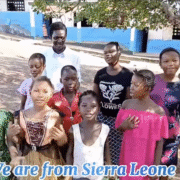The Time to Act Is Now: Reflections on Climate Action Day 2025
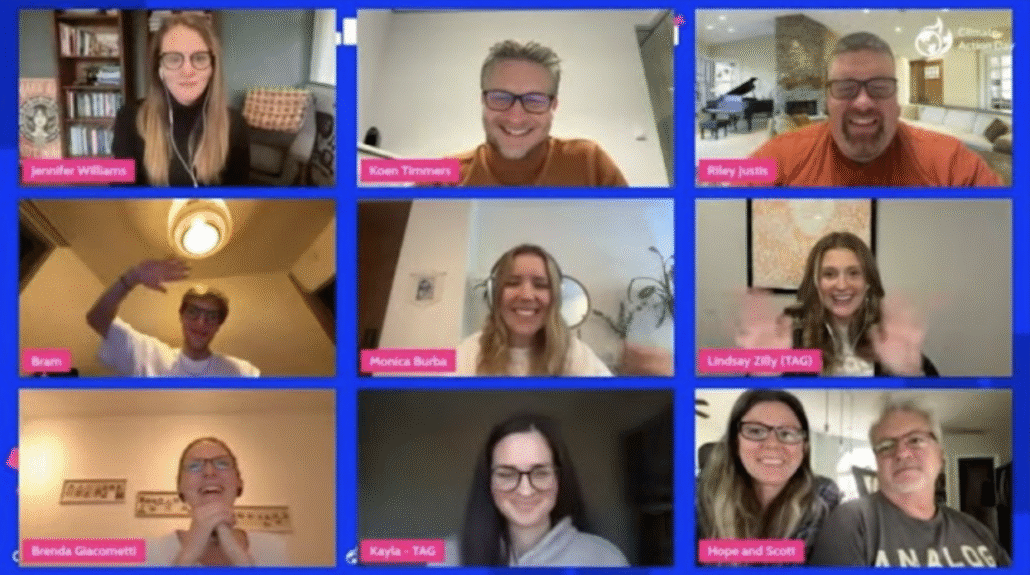
Today was a phenomenal Climate Action Day, and I had the privilege of hosting alongside Take Action Global. What an extraordinary celebration of creativity, courage, and connection!
Throughout the day, one message rang loud and clear: the time to act is now — and the best part? How you act is up to you.
From music to comedy, speaking to singing, dancing to creating — every story, every voice, every act of courage matters. This year’s event reminded us that climate action isn’t just about policy or science; it’s about people, purpose, and passion.
I was especially proud to see our incredibly talented youth interns Caitlin Riordan, Whitney Burton and Nishad Pawar, stepping into the spotlight as youth cohosts — a moment that truly embodied the spirit of intergenerational collaboration.

We had representation from around the world and from a wide variety of programs—it was truly inspiring to see so many Climate Action Schools champions featured as speakers. Students from Sierra Leone at EducAid Primary School Maronka along with their teacher Mohamed Alhaji Fornah shared their bold,
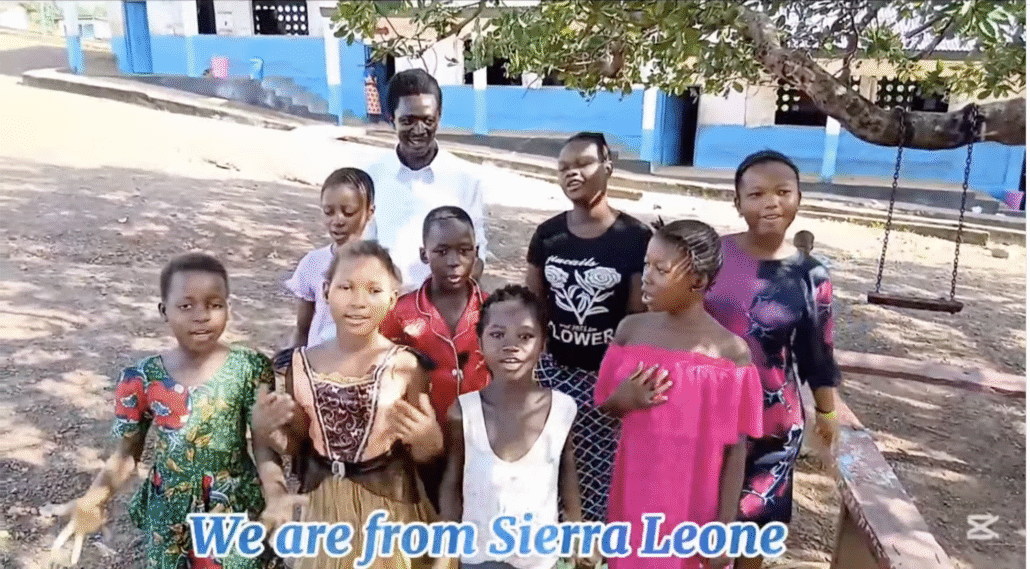
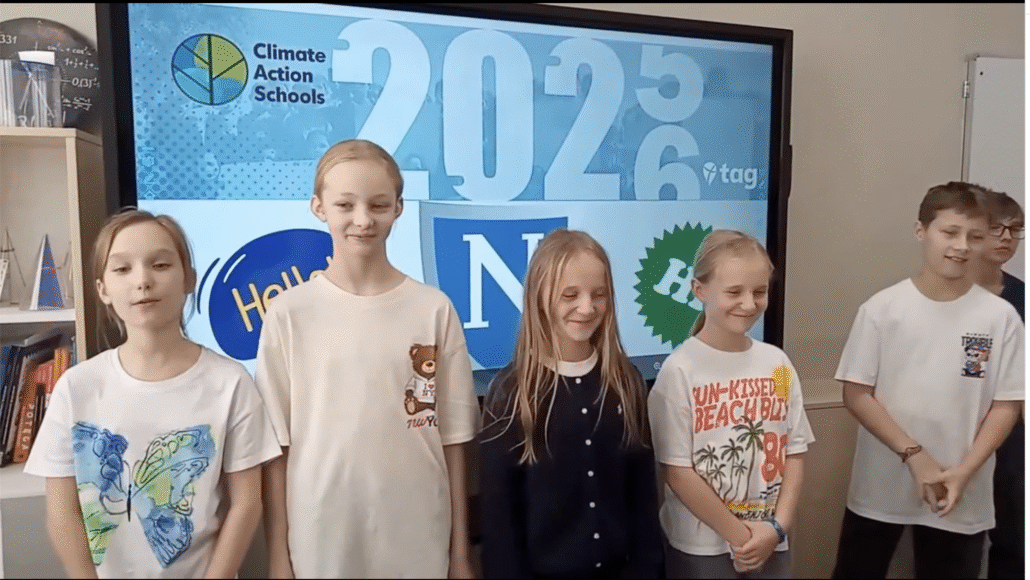
community‑driven work to protect our planet. Meanwhile, Angelika Shatilova’s students from Private Secondary School Polish Noblistow N2 in Kraków presented how they’re applying both the Climate Action Schools program and the Writing Our Future Together curriculum—specifically implementing the Nature Speaks lesson plan into their activities. Their voices remind us: climate action is global, collaborative, and powered by students rising up to meet the moment.
Highlights from the Day
Climate Change is one of the most urgent issues of our lifetime–Macklemore
IG: macklemore
FB: Macklemore
X: macklemore
The singer, songwriter and father reflected on the world we’ll be leaving our children and challenged the youth in the room: “Your generation can be the one to reverse course and give our planet a more hopeful future.” He stressed that we are all connected, we are all in this together, and we ALL have a role to play. One of the most memorable moments of the day was the “Dance Off” challenge he introduced—a metaphor and movement that brought climate action into body, rhythm and community. Through movement, music, laughter and participation, Macklemore underscored that serious issues don’t always need to feel heavy; they can be activated through joy, creativity and unity. He celebrated the work of the Climate Action Project, which already has millions
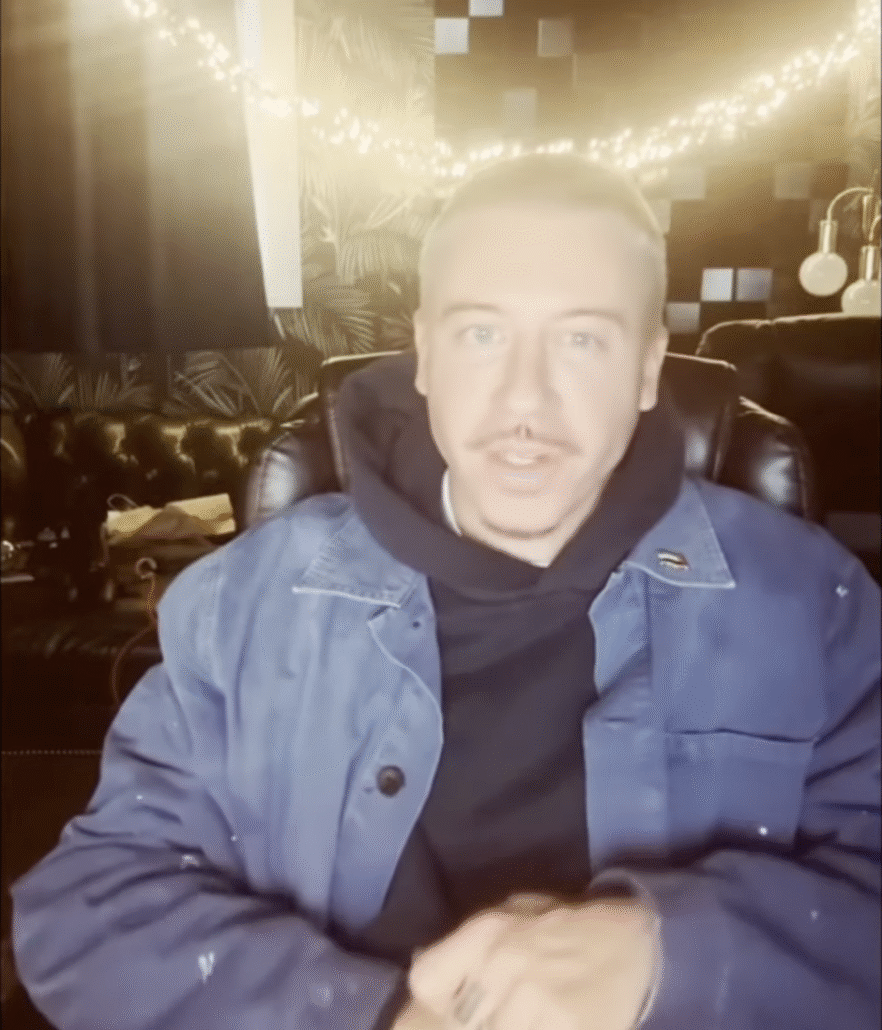
of participants across 180+ countries, and shouted-out classrooms around the globe for stepping up. His encouragement was clear: be creative, be bold and take action—because when we move together, we make change, and if the beat is right, the planet will hear us!
Leveraging comedy for climate conversations – Dr. Matt Winning showed how humor opens doors to hard truths.
IG: mattywin85
FB: Matt
LI: Matt
In his session, Matt brought a fresh and compelling perspective to climate communication: humor as a gateway to deeper engagement. He demonstrated how leveraging comedy can open doors to hard truths—helping people who might otherwise shy away from climate conversations lean in, listen, and think. Matt reminded us: people care about people, so make the message people‑centric and keep it simple. Using comedy doesn’t dilute urgency; instead, it gives us space to cope, connect, and ultimately act. He shared how youth-led efforts (like the school strike movement) show that young voices are essential — and that comedic storytelling can reach those who wouldn’t normally engage with climate change. Research supports this: studies show that humor in climate messaging can boost awareness, increase engagement, reduce anxiety, and invite people to explore the issue rather than pull away.
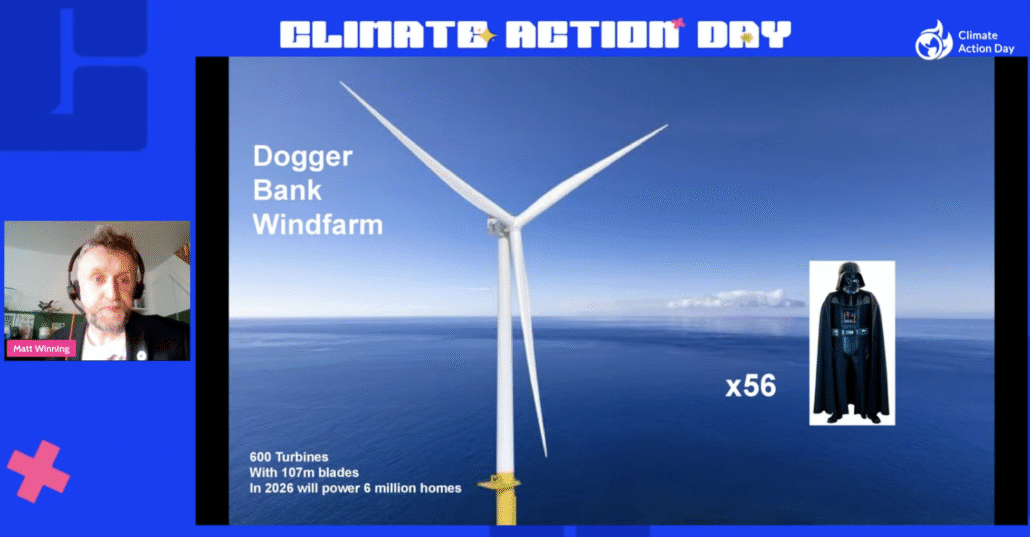
Matt’s message was clear: you don’t need to wait for the perfect platform or the perfect script. Use your voice. Use your style. Bring the story of the planet into the space where people already live, laugh, create, and relate — and you just might inspire someone who thought they were off‑limits for this kind of change.
Social responsibility – Lewis Akenji reminded us that small steps lead to big change.
LI: Lewis
X: lewisakenji
When Lewis took the stage, he reminded us that social responsibility—small steps lead to big change. He helped us clearly see how our everyday behaviours ripple out and shape the health of our planet. He broke it down into six key areas where our actions matter most: food, driving, heating and cooling, consumer goods (like mobile phones), leisure, and services (education and health). He pointed out that while over‑consumption is a major concern, there are also communities that consume too little and lack meaningful ways to participate in society—so conversations about climate and sustainability must include equity and fairness.
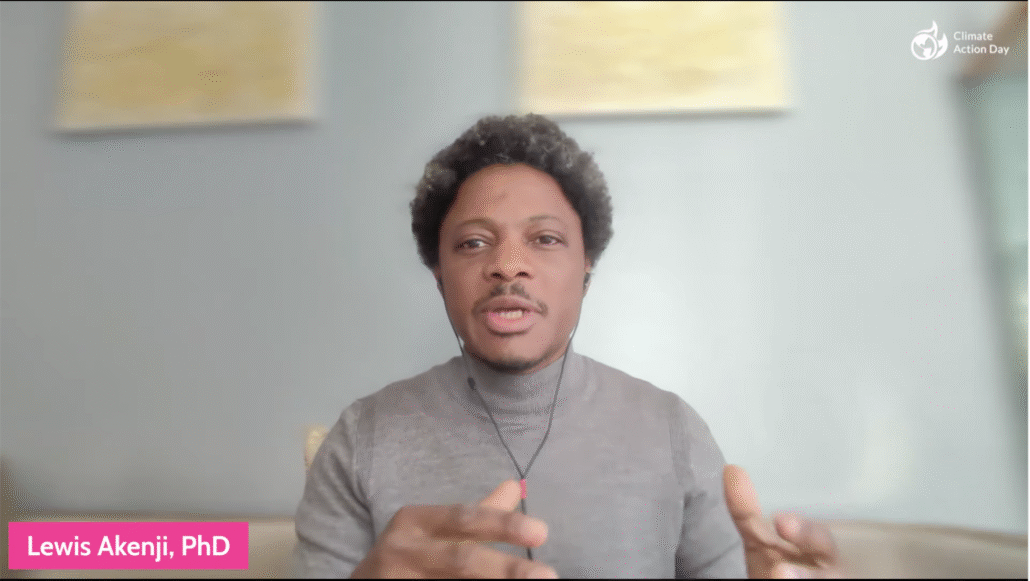
Lewis introduced the REDuse framework as a way to turn awareness into action:
- Refuse the options that are harmful to the environment (for example, fast fashion or single‑use plastics).
- Effuse—go a bit further by choosing repair, reuse, recycling.
- Diffuse—share, collaborate, act in community, not just individually.
He challenged us to apply this responsibility across three spheres: at home, in school, and in politics—including how we choose to vote. He reminded us that youth today are inheriting problems they did not create, and that what we need isn’t competition—it’s collaboration. Because there is hope: when young people stand up and say, “If you don’t do the right thing, you’re putting the future of your children and grandchildren at risk,” we know change is real.
“Don’t wait until you’re an adult; you can take action now.” – Santiago Lefebvre words echoed the urgency of youth leadership.
LI: Santiago
Santiago’s message was personal and powerful: “We can’t just wait for another generation to solve this — at some point, they were talking about me, about my generation.” He reminded us that too often the burden of solving global issues is deferred to “future generations,” but the truth is: the time to act is now. Santiago shared how, over the last ten years, he’s dedicated himself to accelerating concrete climate and environmental solutions because waiting is no longer an option. He encouraged the audience: find a cause that speaks to you, talk with your friends about how you’ll tackle it, form a team, and get moving — because each of you can have a positive impact, you can be change‑makers. He made it clear: as challenges grow, so must solutions. Change must and can happen now.
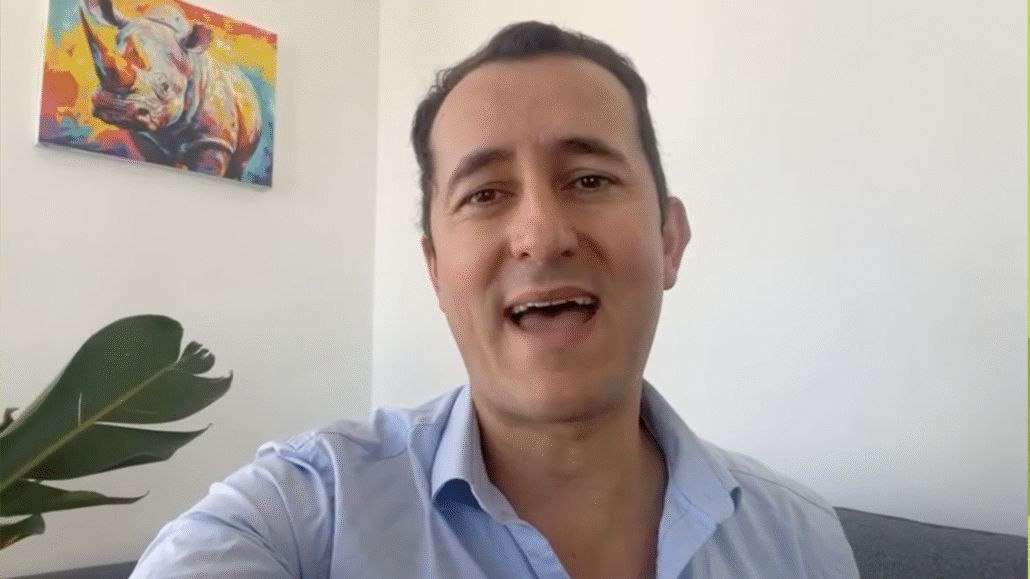
“You never know who you will inspire.” – Sunita Narain’s reminder that every story sparks another.
Sunita reminded us that climate change is an existential threat — it is taking lives, property, livelihoods, and making the poor poorer. Yet she didn’t leave us in despair. Instead, Sunita reframed this threat as an opportunity: an invitation for us to rebuild our relationship with Mother Earth. She urged us to have the courage and imagination to fix it, to recognize that this is a human‑made problem and thus we humans hold the power to solve it. As students, teachers, champions of climate action — you are vital to this movement. Your stories, your actions, your communities are the spark. Because if we practice the change we want, we will see change in the world we inhabit.
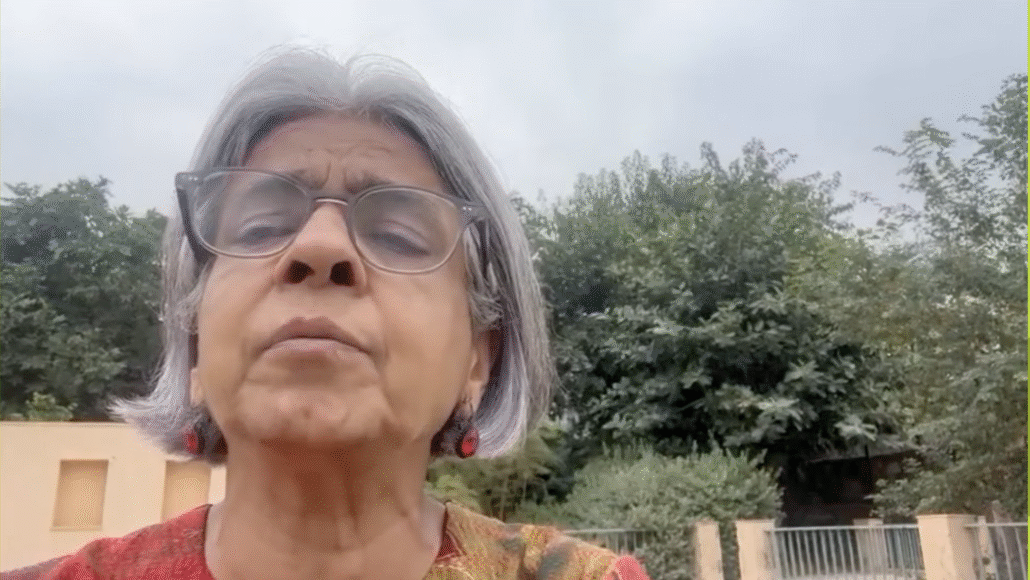
Storytelling that Rocks– Ethan Baxter revealed how ancient chalk rocks tell the story of our climate future.
Ethan invited us into a world where even a rock can tell a climate story. He reminded us that the climate is changing, our global ecosystems are shifting, yet our human society often isn’t keeping pace. We continue to rely heavily on fossil fuels—even though rocks themselves record the consequences of that dependence. Through his “Every Rock Has a Story” series, Ethan uses rock‑stories to unlock hidden chapters of our planet’s past and invite students into geoscience. He emphasized that science only begins when we ask, “What’s your story?” and he challenged each of us to find our interest, find our passion, and recognize that you have a story too—and it matters. When we seek the connections between our lives and the planet, we open a path for learning, engagement and real contribution. Ethan’s call to action was clear: the Earth has always been changing, and so must we. Everyone has the opportunity to do more, to learn more, to engage more.

My story
My journey has always been about building bridges, not walls — working with those who came before me, and connecting with the youth of the world. I’ve sought out opportunities to learn and teach, aiming to build a legacy of activists who will carry this work forward. My first step came in the form of advocacy and creating learning opportunities for others.
Then I realized: I also needed to enjoy the journey. As Edward Norton emphasized, we don’t just fight for change — we must appreciate the process, because when we value it deeply, we understand it more fully.
So, my family and I dove into gardening this year. We built six raised beds, learned about companion planting and harvesting, and introduced composting. We started vermiculture with worms, then planted a pollinator garden beside our food garden. We learned and grew things — and in doing so, we began to appreciate the work that goes into the food we eat every day.
With so much of what we need being automated, this experience reminded us to appreciate the journey — to consider the by‑products, the waste, and to come up with creative ways to fix them.
And a beautiful thing happened. My children shared our story with their friends and other family members. Our neighbor created a little garden, our cousins built one and even my kids’ school is in the process of adding one on sight too. The way in which we told stories of our garden and the fruits of our labor inspired others to take action.

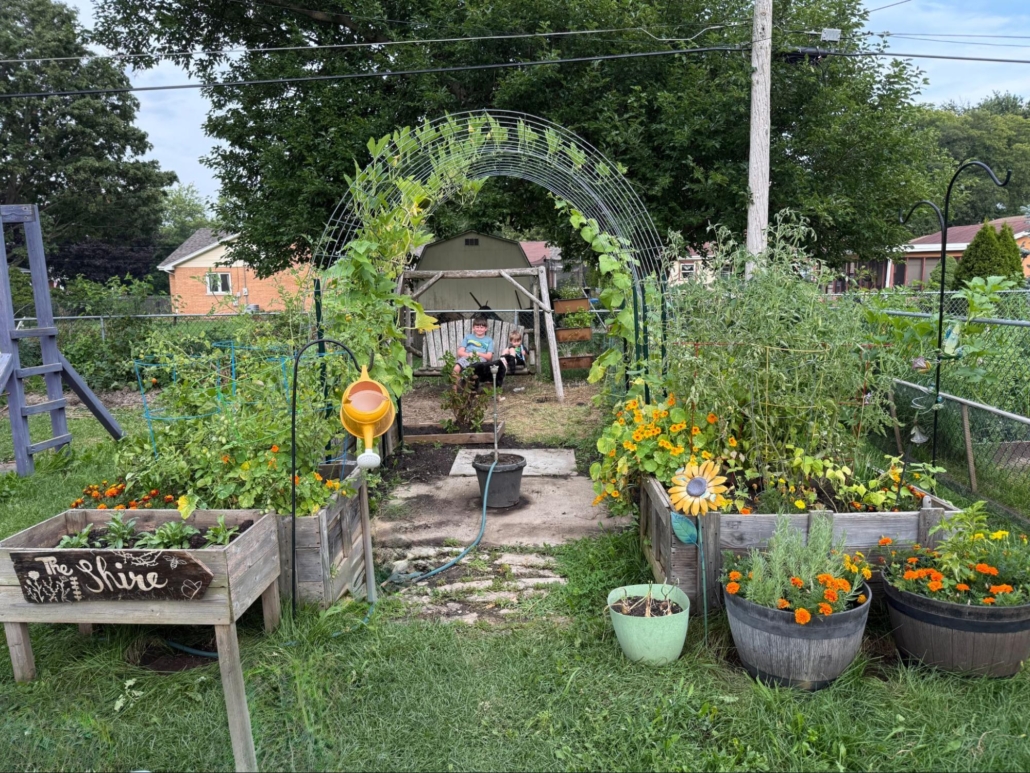
So if I learned anything from Climate Action Day it’s that we must find ways to take care of the planet by doing things we love and sharing our stories.
I recently heard Hoda Kotb share some advice she received from a stranger that really resonated with me:
“Don’t hog your journey. It’s not just for you. You can take your stuff and put it deep in your pockets and go to your grave. Or you can help somebody. You decide.”
Your Turn
Start right now. There’s no perfect time or perfect way — only the courage to begin. Use your voice. Create something meaningful. Enjoy the journey, and most importantly:
Tell your story — because you never know who it will inspire next!

